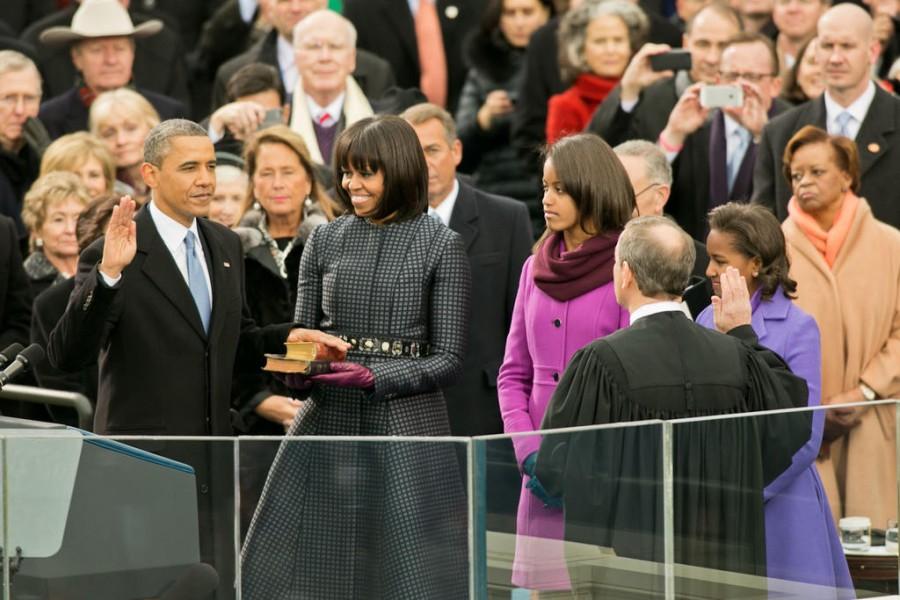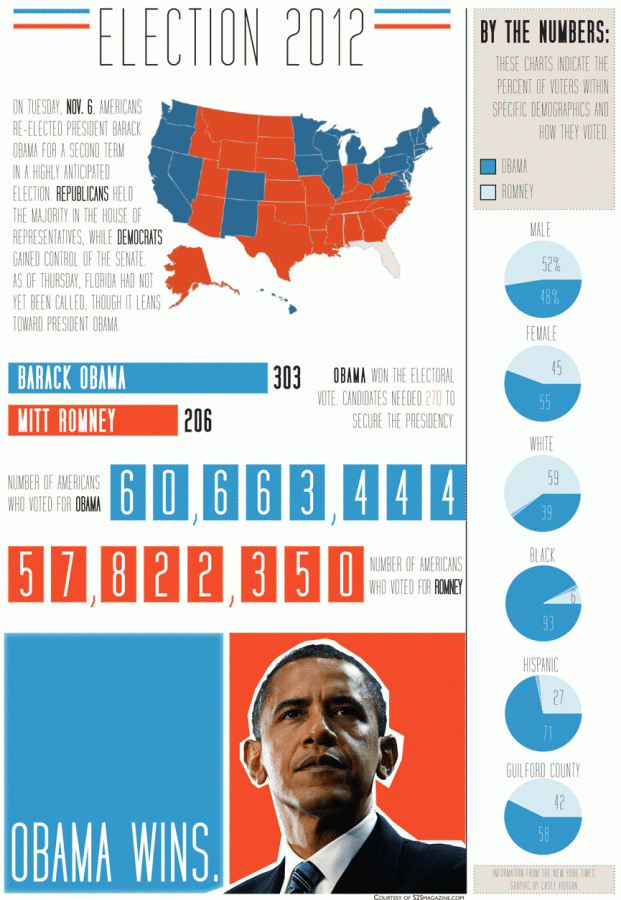President Barack Obama’s Nov. 6 re-election was a monumental world event, accompanied by a wide range of positive and negative global reactions.
“I don’t think there is one ‘world’ opinion of Obama,” said Ken Gilmore, associate professor of political science. “He tends to be well-liked in Europe and parts of Asia and the Middle East, in comparison to previous presidents. He’s very popular across Africa.”
According to the Guardian, in France, 78 percent of people wanted Obama to win, and the president’s second term was applauded across the political spectrum.
François Hollande, the Socialist president, sent his “warmest congratulations” saying this was, “an important moment for the U.S., but also for the world.”
In Africa, the re-election was also well received.
The New York Times reports that Kenya has supported Obama since his first election. Reportedly, one of the strongest reasons for the country’s support is the order President Obama gave to kill Osama Bin Laden.
“The man has shown a quiet competence that is in stark contrast to what came before,” said media commentator Tom Osanjo. “Bin Laden, for example, was responsible for the deaths of many Kenyans, and few here are sad to see him go.”
According to the Associated Press, Kenya takes great pride in its association with Obama and Prime Minister Raila Odinga stated that the election victory was, “a great day for the U.S. and Kenya.”
Support was also strong in Europe. In Britain, the reaction was optimistic.
British Prime Minister David Cameron told the Associated Press, “I think he’s a very successful president and I look forward to working with him in the future.”
The Chinese government acknowledged Obama’s re-election with an affirmative reaction.
News agency Xinhua reported that Chinese President Hu Jintao congratulated Obama on his victory. Jintao said in a message that Chinese and U.S. relations have made positive progress in the past four years as a result of joint efforts.
However, the reactions of some countries were not as positive.
“Obama four years ago came onto the scene with slogans of change and spoke of offering his hand in cooperation to Iran,” Sadeq Larijani, the powerful chief of Iran’s judiciary, told Iran Pulse.
“But (he) acted in a different way and unprecedented sanctions against Iran have materialized, and it is natural that the Iranian people will never forget the crimes of America,” concluded Larijani.
The Russian reaction was unenthusiastic as well.
Chairman of the Russian Duma’s Foreign Affairs Committee Alexei Pushkov stated, “If both parties try to overcome the accumulated distrust, if America comes to realize that it needs to work with Putin instead of thinking that it doesn’t like the Russia that we live in, then we could achieve results.”
Despite the wide range of global reactions, Obama’s re-election does not truly impact other countries’ policies.
“As to what the rest of the world thinks about Obama’s win is anyone’s guess,” said Robert Duncan, visiting assistant professor of political science. “The world is in such a state today, both economically and politically, that I am not sure anyone outside the U.S. really has time to care that much.”
Kyle Dell, associate professor of political science, adds to this sentiment.
“Most people in the world have little or no interest in the election,” said Dell. “Let alone have a meaningful opinion on the results. Even if we were to aggregate together those that do, the reasons for their opinions would be so diverse that I’m not sure we would be able to say much about the common ground that the pro-Romney people would have versus the pro-Obama people.”
Dell continued, “I do think a U.S. presidential election is a visible event on the global political stage, but I have my doubts about how many people are ‘in the theater’ and what we can really say about those that are.”









